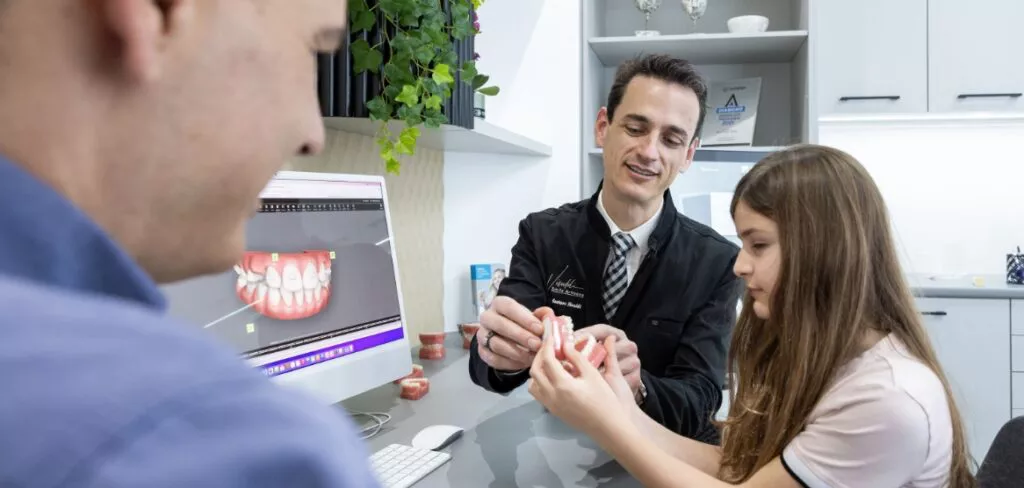Periodontal disease, commonly known as gum disease, is a prevalent oral health issue that affects millions of people worldwide. It is a progressive condition that can lead to serious complications if left untreated. Early detection and proper treatment are crucial in managing and preventing the progression of periodontal disease. In this article, we will delve into the various aspects of treating early periodontal disease, including diagnosis, treatment options, home care tips, and the importance of regular dental visits.
What Is Early Periodontal Disease?
Early periodontal disease, also known as gingivitis, is the initial stage of gum disease. It is characterized by inflammation of the gums caused by plaque buildup. Plaque is a sticky film of bacteria that forms on the teeth and gum line. When plaque is not removed through proper oral hygiene practices such as brushing and flossing, it can harden into tartar, leading to gum irritation and inflammation.
SEE ALSO: What Are Some Warning Signs of Periodontal Disease
Symptoms of Early Periodontal Disease
Recognizing the signs and symptoms of early periodontal disease is crucial for timely intervention. Common symptoms include:
Gum Redness and Swelling: The gums may appear red, swollen, and tender to the touch.
Bleeding Gums: Gums may bleed during brushing or flossing, indicating inflammation.
Bad Breath: Persistent bad breath or a bad taste in the mouth can be a sign of gum disease.
Gum Recession: The gums may start to pull away from the teeth, exposing the tooth roots.
Changes in Tooth Alignment: Teeth may shift or become loose as the supporting structures weaken.
Diagnosing Early Periodontal Disease
Dentists diagnose early periodontal disease through a comprehensive dental examination, which may include:
Visual Inspection: Examining the gums for signs of inflammation, bleeding, or recession.
Probe Measurements: Using a periodontal probe to measure pocket depths around the teeth. Deeper pockets indicate advanced gum disease.
X-rays: Imaging techniques to assess bone loss and the overall health of the supporting structures.
Early detection is key to successful treatment and preventing further damage to the gums and underlying bone.
Treatment Options for Early Periodontal Disease
Professional Dental Cleaning: The first step in treating early periodontal disease is a professional dental cleaning, also known as scaling and root planing. This procedure removes plaque and tartar buildup from the teeth and root surfaces, eliminating bacteria and reducing inflammation.
Antimicrobial Therapy: Dentists may prescribe antimicrobial mouth rinses or gels to reduce bacteria and promote healing.
Home Care Recommendations: Patients are advised to maintain good oral hygiene practices at home, including brushing twice a day, flossing daily, and using an antimicrobial mouthwash. Electric toothbrushes and water flossers can be beneficial in effectively cleaning hard-to-reach areas.
Lifestyle Modifications: Quitting smoking, managing stress, and adopting a healthy diet rich in fruits, vegetables, and low in sugar can support gum health and overall well-being.
Importance of Follow-Up Care
Regular follow-up appointments with the dentist are essential for monitoring the progress of treatment and addressing any concerns or new symptoms. During these visits, the dentist may perform periodontal maintenance cleanings to keep the gums healthy and prevent disease recurrence.
Long-Term Outlook
With timely intervention and proper management, early periodontal disease can be effectively treated, and the progression of gum disease can be halted. However, it is important for patients to commit to ongoing oral care and routine dental check-ups to maintain optimal oral health.
Conclusion
Early periodontal disease is a common but treatable condition that requires prompt attention and proper care. By understanding the symptoms, diagnosis, and treatment options for early gum disease, patients can take proactive steps towards preserving their oral health and preventing complications associated with advanced periodontal disease. Regular dental visits, professional cleanings, and consistent home care practices are key components of a comprehensive approach to treating and managing early periodontal disease.
FAQs
Can you recover from early periodontitis?
Yes, it is possible to recover from early periodontitis, which is the initial stage of gum disease. Early intervention, proper treatment, and diligent oral hygiene practices can help reverse the effects of early periodontitis and restore gum health.
Treatment often includes professional dental cleanings, antimicrobial therapy, and lifestyle modifications.
How to stop early periodontitis?
To stop early periodontitis, it’s crucial to maintain good oral hygiene habits, including brushing your teeth twice daily with fluoride toothpaste, flossing daily to remove plaque and food debris between teeth, and using an antimicrobial mouthwash as recommended by your dentist. Regular dental check-ups and professional cleanings are also essential in preventing the progression of early periodontitis.
Can you stop periodontal disease from progressing?
Yes, with timely intervention and consistent oral care, it is possible to stop periodontal disease from progressing. Treatment options for periodontal disease include professional cleanings, scaling and root planing, antimicrobial therapy, and surgical procedures in advanced cases. It’s important to follow your dentist’s recommendations for home care and attend regular dental visits to monitor and manage the condition effectively.

